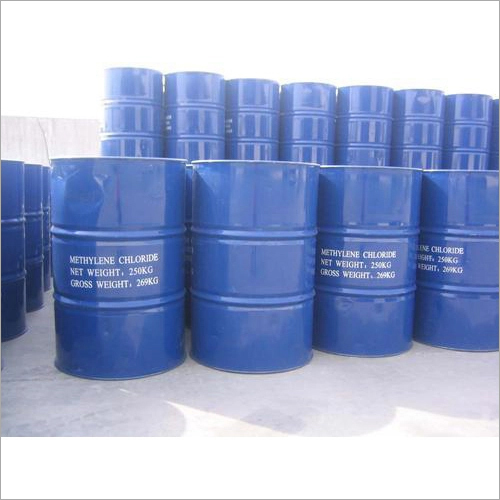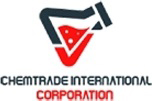
Methylene Chloride
200.00 - 250.00 INR/Kilograms
Product Details:
X
Methylene Chloride Price and Quantity
- 200.00 - 250.00 INR/Kilograms
- 20 Ton
Methylene Chloride Trade Information
- Cash in Advance (CID)
- 7 Days
- All India
Product Description
Methylene Chloride is mostly used as a solvent for degreasing, removing varnish, and making aerosol spray repellant. Because of its high volatility and stability, it is a powerful solvent. It is utilized in paint removal, degreasing and cleaning, and manufacturing. This is very effective and safe to use. A multitude of industries and uses use methylene chloride as a solvent, including adhesives, paint and coating products, medicines, metal cleaning, chemical processing, and aerosols. This is very easy to use and widely used.
Methylene Chloride Properties:
1. Physical State: Methylene chloride is a liquid at room temperature and atmospheric pressure.
2. Odor: It has a slightly sweet and pleasant odor, which can be detected at low concentrations.
3. Density: The density of methylene chloride is around 1.326 g/cm3.
4. Boiling Point: Methylene chloride has a relatively low boiling point of about 39.8 degree centigrade, which makes it volatile and easy to evaporate.
5. Melting Point: The melting point of methylene chloride is approximately -96.7 degree centigrade.
6. Solubility: Methylene chloride is highly soluble in organic solvents like alcohol, ether, and chlorinated hydrocarbons. It is also slightly soluble in water, with a solubility of around 1.32 g/100 mL at 20 degree centigrade.
7. Vapor Pressure: The vapor pressure of methylene chloride is relatively high, even at room temperature, contributing to its volatility.
8. Reactivity: Methylene chloride is relatively stable under normal conditions and is not highly reactive. However, it can undergo reactions such as hydrolysis and oxidation when exposed to certain conditions.
9. Flammability: Methylene chloride is not highly flammable. Its flash point is approximately -40 degree centigrade, which means it can ignite under specific conditions, but it is not considered a major fire hazard.
10. Toxicity: Methylene chloride can be hazardous to human health if inhaled or ingested. It has anesthetic properties and can cause dizziness, nausea, headaches, and in severe cases, unconsciousness or even death in high concentrations. Prolonged exposure may also lead to respiratory and central nervous system effects. Due to its potential health risks, proper ventilation and protective equipment are necessary when handling this chemical.
11. Uses: Methylene chloride is commonly used as a solvent in various industrial processes, including paint stripping, adhesive removal, and cleaning. It is also used as a blowing agent in the manufacture of foams, as a propellant in aerosol products, and as an extractant in the production of decaffeinated coffee and tea. Additionally, it finds applications in the production of pharmaceuticals, film coatings, and electronics.
Applications of Methylene Chloride:
1. Paint Stripping and Coating Removal: Methylene chloride is commonly used as a powerful paint stripper and coating remover. It effectively softens and removes paint, varnishes, lacquers, and other coatings from surfaces like wood, metal, and plastic.
2. Adhesive Removal: It is used to dissolve and remove adhesives, glues, and sealants from surfaces and products.
3. Extraction of Caffeine from Coffee and Tea: Methylene chloride is employed in the decaffeination process of coffee and tea. It selectively removes caffeine from the beans or leaves while minimizing the extraction of other compounds.
4. Foaming Agent: Methylene chloride is utilized as a blowing agent in the production of foam materials, such as polyurethane foams. It helps create the cellular structure and desired properties of the foam.
5. Aerosol Propellant: Due to its low boiling point and volatility, methylene chloride is used as a propellant in aerosol products like spray paints, insecticides, and other consumer goods.
6. Solvent in Pharmaceuticals: It is used as a solvent in the production of pharmaceuticals, particularly in the extraction and purification of active pharmaceutical ingredients.
7. Film Coatings and Adhesives: Methylene chloride is used in the formulation of film coatings for tablets and capsules in the pharmaceutical industry. It is also used in the production of adhesives and sealants.
8. Electronic Component Cleaning: Methylene chloride is employed for cleaning and degreasing electronic components and precision instruments.
9. Laboratory and Analytical Chemistry: It is used as a solvent in various laboratory procedures and analytical techniques, such as liquid-liquid extraction and sample preparation.
10. Manufacturing of Polycarbonate Plastics: Methylene chloride is involved in the production of polycarbonate plastics, which are used in a wide range of applications, including eyeglass lenses, CDs, and medical devices.
11. Textile Processing: It is used in textile processing for dyeing and finishing fabrics, as well as in scouring and cleaning operations.
12. Chemical Manufacturing: Methylene chloride is employed as a solvent and reactant in various chemical synthesis processes, including the production of specialty chemicals and intermediates.
FAQ:
Q. What is methylene chloride?
Ans: Methylene chloride, also known as dichloromethane (DCM), is a volatile organic compound with the chemical formula CH2Cl2. It is a colorless, liquid solvent with a mildly sweet odor.
Q. What is methylene chloride used for?
Ans: Methylene chloride has various applications, including paint stripping, adhesive removal, decaffeination of coffee and tea, blowing agent for foams, aerosol propellant, solvent in pharmaceuticals, film coatings, and more.
Q. Is methylene chloride toxic?
Ans: Yes, methylene chloride can be toxic if inhaled, ingested, or absorbed through the skin. Prolonged exposure can lead to health issues, including dizziness, nausea, respiratory and central nervous system effects, and, in extreme cases, unconsciousness or death.
Q. How is methylene chloride exposure controlled?
Ans: Proper ventilation, personal protective equipment (PPE), and adherence to safety regulations are crucial when handling methylene chloride. Using the chemical in well-ventilated areas and wearing appropriate protective gear (gloves, goggles, respirators) can help minimize exposure risks.
Q. Is methylene chloride flammable?
Ans: Methylene chloride is not highly flammable, but it can ignite under certain conditions. It has a low flash point, so precautions must be taken to prevent fires when handling it.
Q. Can methylene chloride be used at home?
Ans: While methylene chloride has many applications, its use at home for paint stripping or other purposes is discouraged due to its potential health risks. Safer alternatives should be considered.
Q. What are the alternatives to methylene chloride for paint stripping?
Ans: Safer alternatives for paint stripping include citrus-based solvents, soy-based products, and water-based paint removers. These alternatives are less toxic and pose fewer health risks.
Q. Is methylene chloride banned?
Ans: In some regions, there have been efforts to restrict or ban the use of methylene chloride in consumer products due to safety concerns. Regulations vary by jurisdiction.
Q. Is methylene chloride environmentally friendly?
Ans: Methylene chloride is volatile and can contribute to air pollution. It can also contaminate groundwater if not properly managed. As such, its use and disposal should be handled with care to minimize environmental impact.
Q. Can methylene chloride be recycled or disposed of?
Ans: Methylene chloride waste should be handled as hazardous waste and disposed of in accordance with local regulations. Recycling of methylene chloride is not common due to its potential hazards.
Enter Buying Requirement Details
 |
Chemtrade International Corporation
All Rights Reserved.(Terms of Use) Developed and Managed by Infocom Network Private Limited. |

 English
English Spanish
Spanish French
French German
German Italian
Italian Chinese (Simplified)
Chinese (Simplified) Japanese
Japanese Korean
Korean Arabic
Arabic Portuguese
Portuguese